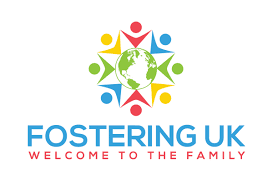Fostering Meaning & How to Foster a Child
There are many different types of foster care, but generally, fostering meaning is when a child or young person is looked after by someone other than their birth parents or family. This could be because the child’s own parents are not able to take care of them, or because it would be better for the child to be in a different type of family setting for their development and wellbeing.
Foster families can provide a temporary or permanent home for children and young people. Some children may only need to stay in foster care for a short time, until their own family situation improves. Others may need to stay longer term, or even permanently.
Foster families come from all walks of life and can be single people, couples (heterosexual or same-sex), or families with or without children of their own. What they all have in common is that they have space in their hearts and homes to love and care for another child.
How to Foster a Child
There are many children who need homes, and there are many families who are interested in providing foster care. But what does it take to be a good foster parent? Here are some tips:
Be patient: Children who have been through trauma may act out or have behavioral issues. It takes time and patience to help them heal and learn to trust again.
Be flexible: Every child is different, so you need to be prepared to adjust your parenting style to meet their needs.
Get support: Being a foster parent can be emotionally and mentally challenging. Make sure you have a support system in place, whether that’s family, friends, or a support group for foster parents.
Be prepared for the long term: Some children will only need foster care for a short time, but others may need it for much longer. Be prepared for the possibility that the child you foster could become a permanent member of your family.It can be difficult to know how to foster a child perfectly, but there are some key things you can do to make sure you're giving them the best possible care. First and foremost, it's important to make sure you're providing a warm and loving home for your foster child. This means creating a stable and nurturing environment where they feel safe and loved. Secondly, you'll need to be patient with your foster child as they adjust to their new surroundings and family. It's important to give them the time and space they need to feel comfortable and settled in. Lastly, it's crucial to work closely with the child's birth family and other professionals involved in their care, such as social workers and therapists. The real fostering meaning is This will help ensure that the child is getting the support they need and that their transition into foster care is as smooth as possible.
Here are the steps to know that how to fostering in the uk:
1. Research: Start by learning about the different types of fostering and the requirements for becoming a foster carer.
2. Contact a fostering agency: You can choose to work with a local authority or an independent fostering agency. Both will provide you with information about the fostering process and help you determine if you a
re eligible to become a foster carer.
3. Attend an information session: Most fostering agencies offer information sessions to prospective foster carers. These sessions provide an opportunity to learn more about fostering and ask any questions you may have.
4. Complete the application process: This includes completing an application form, providing references, and undergoing a criminal records check. You will also be required to attend an assessment, which includes a home visit and interviews with you and your family.
5. Training: Once you have been approved as a foster carer, you will need to complete training to prepare you for the role.
6. Matching with a child: Once you are fully approved and trained, you will be matched with a child who needs foster care.
7. Ongoing support: Foster carers receive ongoing support from their fostering agency, including regular supervision and training opportunities.
UK Fostering works closely with local authorities and other organizations to provide a range of foster care services, including short-term, long-term, and emergency foster care. They are committed to providing foster carers with the training, support, and resources they need to provide the best possible care for the children and young people in their care.




Comments
Post a Comment